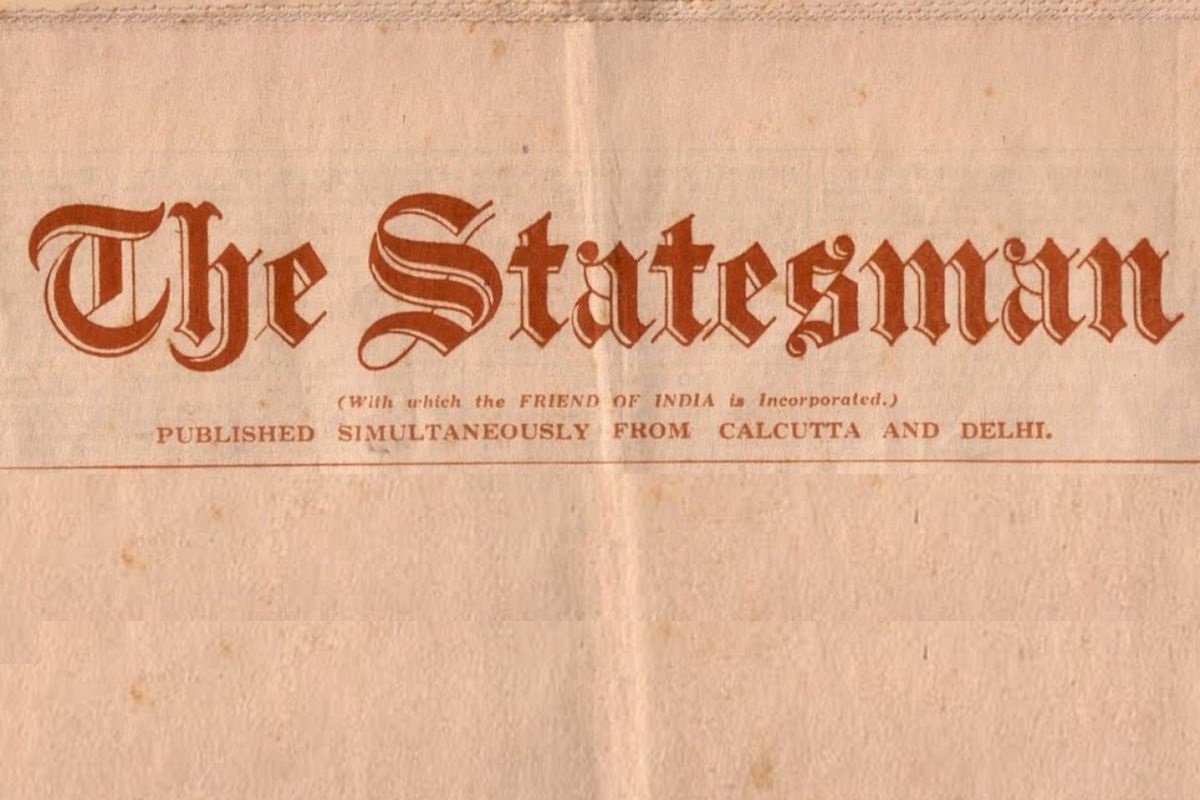NEWS ITEMS
GIRLS’ SCHOOLS IN BOMBAY
Bombay, Apr. 26
Advertisement
An interesting application was made in the Bombay High Court on behalf of a resident of Surat who was convicted under section 10 of the Primary Education Act for having neglected his little daughter’s education in a recognised municipal school and subsequently fined one rupee by the Sub-divisional Magistrate of Surat. The petitioner alleged that his daughter was admittedly attending a Rashtriya (National) girls’ school, and that the real motive of the prosecution was not prompted by any desire to secure the educational welfare of the girl, but was designed to give the deathblow to all private enterprise in the matter of the education of children. Particularly was this so in the case of Rashtriya schools said the petitioner to the committee of management of primary education in Surat.
ARMY CLOTHING FRAUD CASE
Allahabad, Apr. 26
An echo of the Army Clothing frauds case was heard in Allahabad High Court when Justice Daniels dismissed the revisional applications of Niranjan Chaudhri and Narain Chandra Chatterji who were convicted by the joint magistrate of Allahabad in December last for the abetment of an offence of criminal breach of trust with regard to a number of great-coats sold at auction for Rs. 1,100. The two accused were each sentenced to one year’s rigorous imprisonment and fined Rs. 1,000. They appealed to the Sessions Judge of Allahabad who upheld the convictions and sentences. Against the latter’s decision they appealed to the High Court. This was the last of a series of cases which the Government had started in connection with the Army Clothing Depot at Allahabad.
PROHIBITION SCANDAL IN AMERICA
Citizens of Gary, the steel centre in Indiana, are shocked by the verdict of the jury in the United States court finding fifty-five of its most prominent residents are guilty of wholesale corruption and entering into a conspiracy to violate the prohibition law. Among those convicted of the crime, for which two years’ imprisonment and a fine of pound 2,000 may be imposed, are the mayor of the city, the sheriff, the prosecuting attorney, a city judge, and many of the most prominent business men. Summing up for the Government, the prosecutor said that the evidence submitted proved that lawyers sharing the profits. As the result of official corruption liquors could be bought openly at every soda-water shop in the city until the Government agents arrived.
MUNICIPALITY AND “KHADDAR”
Bombay, Apr. 26
At the Bombay Corporation today an animated debate took place on Mr. Jamnadas Mehta’s proposition for the universal adoption of khaddar (handspun handwoven cloths) by municipal employees. Mr. Mehta considered the question from a purely economic point of view. Khaddar was cheap and durable and would effect a handsome saving out of the Rs. 33,000 spent every year on uniforms for municipal employees. It was in the interest of the city and municipal administration that he brought forward his resolution. Besides khaddar embodied the sentiments of thousands of citizens in Bombay and therefore, it behoved the municipality as a representative institution to echo their feelings. Mr. Mehta further held that the resolution might be opposed by those who nurtured a political bias in their minds.
FARMERS OFFER THREE ALTERNATIVES
The deadlock in the Norfolk agricultural dispute is likely to remain until the Government’s intentions are known. The employers offered three alternatives, namely, twenty-four shillings for a week of fifty hours, twenty-five shillings for a week of fifty-two hours or twenty-six shillings for a week of fifty-four hours, with an additional shilling a week if the Government carried out its proposals to halve the rates on agricultural land. In the course of a meeting of the Union, the leader transmitted a proposal made by the Bishop of Norwich namely the continuation of the old rates until the Government scheme to relieve agriculture had been definitely adopted, but which the employers had refused.
OCCASIONAL NOTE
The second round proper of the English Football Association Cup was played on Saturday last and after the replays there will be sixteen fewer clubs left in the competition. The annual excitement over the Cup may be likened to an intermittent fever with crises occurring every fortnight for a period of three months and after that a month of tense anticipation until the fever reaches a head on the day the final is played. The competition, embracing as it does all the teams in the three English leagues as well as amateur clubs, generally supplies a crop of surprising results and reversals of form. When a team in a junior League beats a senior League team, there is general consternation and those who are not close followers of the game immediately jump to the conclusion that a result such as this shows the unsoundness of the League system. Mature judges, however, realise that a different type of football is played and in the hurly-burly of cup-ties, scientific football is often overcome by kick and run tactics. Last Saturday’s results bear this out and the game in which Charlton, a low placed Third Division club, beat Preston North End, a first League club and last year’s runners up in the final, is a case in point. The last four should be found among the clubs mentioned above, together with Liverpool, Bolton, Cardiff and the winner of the Middlesbrough-Sheffield replay.











